Night Themes
Themes are overarching ideas and beliefs that the writers express in their texts, including poetry, fiction , and plays. Themes make the story appealing and persuasive and help readers to understand the hidden messages in a story or poem . Themes in Night , a masterpiece of Elie Wiesel , are diverse. They present question a man’s faith, show the effects of cruelty and hatred, along with the dark sides of human nature. Some of the major themes in Night have been discussed below.

Themes in Night
Cruelty in the Holocaust
The Night demonstrates terribly cruel acts by the Nazis against the Jews, also known as The Holocaust. Elie’s family is in Sighet. They are ordered to move in segregated places and are forced to board a train to Auschwitz. Cruelty can be assessed from the fact that various people have already foreseen their deaths. For example, Madam Schachter starts screaming at the top of her voice and imagining that there is a fire. Moishe of Beadle also warns the people that they would be driven to their deaths, yet nobody believes him. Eliezer later remembers that people often took him as a lunatic. Elie, who is in his teens during these events, witnesses his family’s death and the horrors of the concentration camps. Eliezer questions his faith when he sees a young boy hanging on the gallows.
Humanity is absent from the main storyline. However, it can be considered as an overarching theme . Most of the characters treat each other with prejudice and inhumanity. Amidst this chaos, however, readers will find a few exceptions. For example, a veteran prisoner advises Eliezer that he should forget his father, or else he would lose his own life. He says, “You cannot think of others.” Eliezer feels that he had lost his humanity. He understands the circumstances and doesn’t condemn Rabbi’s son for leaving his father to die. Instead, he blames himself for his father’s death. Due to fear, Elie loses a sense of humanity and kindness when he does not give water to his father. He thinks by doing so, he’ll be killed by the Germans.
Faith in God is another major theme of the novel . When Eliezer in Sighet, his primary concern is the study of his religion, Judaism, and the purpose of life on this earth. He used to take an interest in religion and religious studies. Once he enters the concentration camp, he begins to doubt the existence of God. He often thinks that if such a great power existed, God wouldn’t allow such events, and also protect the chosen people. As the internal battle for the faith continues, he believes that “man is stronger, greater than God.” In fact, most inmates of the camp face the same dilemma about God’s existence.
Families were broken during the mayhem of transportation to the concentration camps to Auschwitz and other camps. Eliezer, for example, gets separated from his mother and sisters. During the camp, his relationship with his father turns cold. Because whenever Germans see such sympathies or efforts to support one another, they would kill them. Another such family relation is witnessed through the son of Rabi Eliahu, who gets separated from him. When he sees that he is unable to support his father, he leaves him and moves on. However, Eliezer prays to God that such a time should not come for him. However, Elie’s father dies, and Elie tries to suppress the loss.
Silence and suppression is another major theme of the novel. Eliezer observes that it is strange that despite warnings from Moishe the Beadle and Madam Sachachet, the Jews did not try to flee. There is a lack of voice even in Auschwitz and other camps. The most prominent silence is the silence of God. Though people cried out for Him, there was no answer. A prisoner asks it clearly “Where is God?” The play of Beethoven by Juliek amid death is a reminder that the people are alive and that they can speak. The rest is all silence.
Faith in God
Elie Wiesel had seen very religious people going to the death chambers with blank faces. He sees the Germans putting the little and innocent children to gas chambers or sending them to gallows. It is obvious that every person will question the very existence of God crying, ‘Where is God?’ Elie becomes numb and loses faith in God as he thinks that he may never believe in God. Therefore, the theme of faith in God also goes with the other thematic ideas like faith.
The theme of loyalty is closely tied to the theme of humanity. In fact, this loyalty sets human beings apart from other social creatures. Elie Wiesel proves his loyalty through his own relationships and the relationship of the son of the Rabbi. At first, he thinks that he is more loyal to his father and accompanies him on every stage of their lives. However, as he gives in to the fear of survival, he becomes numb and silent during the last stages of his father’s life. He doesn’t give him because of the fear of death, either of his own or of his father. Secondly, when Rabbi’s son, helplessly watches his father be crushed during the march, he prays that he does not face the same situation.
Insight into Human Nature
Understanding human nature, its unpredictability is another major theme of the novel. According to the author, human beings neither good nor bad. However, when they feel superior to their race and religion, they become cruel and kill people without any remorse. Even sometimes close and blood relatives ignore each other such as the son of Rabbi and Elie ignoring their fathers. Also, people stop believing in religion or the existence of God when they are desperate for safety.
Dignity or dignity of human life is another minor theme of the novel. However, the readers will only notice a loss of dignity such as Madam Schachter and Moise the Beadle. Under the Nazi regime, Jewish people were stripped of dignity and massacred in the most inhuman manner. The author’s story of survival is one of the million examples of people who lost their dignity before losing their lives.
Freedom from Oppression
Freedom from the oppression of the German occupation forces came after millions of Jews were slaughtered. During the marching or changing camps, Elie feels that his father has rather become a burden on him. Every prisoner wanted to be free from physical and mental torture in the concentration camps.
Related posts:
- Twelfth Night Themes
- Night Quotes
- Night Characters
- Macbeth Themes
- Hamlet Themes
- 1984 Themes
- The Crucible Themes
- Frankenstein Themes
- Oedipus Rex Themes
- The Metamorphosis Themes
- Beowulf Themes
- Odyssey Themes
- Beloved Themes
- Slaughterhouse-Five Themes
- Antigone Themes
- Inferno Themes
- Fahrenheit 451 Themes
- Into the Wild Themes
- The Alchemist Themes
- Life of Pi Themes
- The Invisible Man Themes
- The Tempest Themes
- The Iliad Themes
- The Jungle Themes
- Siddhartha Themes
- The Stranger Themes
- The Aeneid Themes
- Dracula Themes
- To Kill a Mockingbird Themes
- The Scarlet Letter Themes
- The Canterbury Tales Themes
- Heart of Darkness Themes
- Brave New World Themes
- Death of a Salesman Themes
- Things Fall Apart Themes
- A Tale of Two Cities Themes
- A Doll’s House Themes
- The Grapes of Wrath Themes
- Crime and Punishment Themes
- Their Eyes Were Watching God Themes
- Wuthering Heights Themes
- In Cold Blood Themes
- The Kite Runner Themes
- The Glass Castle Themes
- King Lear Themes
- The Adventures of Huckleberry Finn Themes
- Acquainted with the Night
- Twelfth Night
- Flying at Night
- The Starry Night
- Do Not Go Gentle into That Good Night
- Ships That Pass in the Night
- Twelfth Night Quotes
- Twelfth Night Characters
- A Midsummer Night’s Dream
- Winter Night: Edinburgh
- Romeo and Juliet Themes
- Lord of the Flies Themes
- Jane Eyre Themes
- Julius Caesar Themes
- 10 Different Themes in Taylor Swift Songs
- A Huge List of Common Themes
- Examples of Themes in Popular Songs
- To Kill a Mockingbird Racism
- Elie Wiesel
- Never Shall I Forget
Post navigation
By Elie Wiesel
'Night' by Elie is an important memoir of the Holocaust, depicting the horrors and truth of Germany's treatment of European Jews.
About the Book

Article written by Emma Baldwin
B.A. in English, B.F.A. in Fine Art, and B.A. in Art Histories from East Carolina University.
The novel is an important historical memoir published in 1960 . It was not until the trial and execution of Adolf Eichman in 1961, a year after the novel was finally published, that it came fully into the public spotlight.
Key Facts about Night
- Title: Night
- When/where written : 1955-1958, South America and France
- Published: 1960
- Genre: Memoir/Semi-fictional autobiography
- Point-of-View: First-person
- Setting: Europe during WWII
- Climax: the death of Eliezer’s father, Shlomo
- Antagonist: The SS soldiers and broader anti-Jewish laws and sentiment.
Elie Wiesel and Night
Unlike some novels that are written at a distance, Night is tied up with the author’s life in an intimate, unignorable way. Wiesel has spoken about Night as his account of what happened in the concentration camps , one that is set back only slightly from reality through the creation of Eliezer and a few changes of events and circumstances. The novel is brutally honest, and clear. Wiesel spends its brief 100 pages depicting the lead up to the ghettos, trains, and camps, the loss of his family members, including his mother and sister, and then later his father as well, his suffering (and the suffering he observed) and finally his liberation. Night is incredibly personal , so much so that its language only gives the reader so much access to a time in Wiesel’s life that anyone would want to forget, but which he knew was too important to keep in his past. The novel was written several years after WWII, from the perspective of a thirty-year-old man, looking back on himself as a young adult. The climax of the novel connects intimately to one of the most important but often overlooked themes in Night, that of father/son relationships. Or, more specifically, sons and their treatment of their fathers. When Eliezer’s father, Shlomo, dies, and Eliezer experiences freedom from the burden of his father’s care, Wiesel represents the true breadth of the changes he’d undergone in the camps and the desperate state to which he and others were existing in.

Books Related to Night
The lasting impact of night .
Today, Night is commonly considered to be one of the best personal accounts of the Holocaust ever written . It is read in middle schools, high schools, and universities around the world, providing students with an insight into the horrors of the Second World War as they were experienced by someone close to their own age. It is one of the first ways that young people learn about the Holocaust. Night is also credited with helping to preserve the story of the Holocaust, something that Wiesel was incredibly passionate about. When speaking about the story of his life and the lives of millions of others who died, lost their families, homes, and identities during the war, he said that it would be “ not only dangerous but offensive ” to forget them.
Night Review ⭐
‘Night’ is a novel that transcends the average book review.
Night Themes and Analysis
‘Night’ is a short and incredibly impactful novel that uses direct language and avoids metaphors and other figures of speech to tell its story.
Night Quotes 💬
‘Night’ is filled with powerful and memorable quotes. There are a few of the most important. They depict Eliezer’s experience when newly imprisoned and after suffering for months at the hands of the SS.
Night Historical Context 📖
‘Night’ is Elie Wiesel’s best-known novel, one that encapsulates, in a semi-fictional way, his experiences in the Holocaust.
Night Character List 📖
The characters in ‘Night’ are described deeply and thoughtfully from the perspective of the novel’s narrator, Eliezer Wiesel.
Night Summary 📖
‘Night’ was published in 1960 and details the author’s experiences in the Holocaust along with his father, Shlomo. It follows the period from 1944 to 1945 when the camps were liberated.
It'll change your perspective on books forever.
Discover 5 Secrets to the Greatest Literature
There was a problem reporting this post.
Block Member?
Please confirm you want to block this member.
You will no longer be able to:
- See blocked member's posts
- Mention this member in posts
- Invite this member to groups
Please allow a few minutes for this process to complete.
- Human Editing
- Free AI Essay Writer
- AI Outline Generator
- AI Paragraph Generator
- Paragraph Expander
- Essay Expander
- Literature Review Generator
- Research Paper Generator
- Thesis Generator
- Paraphrasing tool
- AI Rewording Tool
- AI Sentence Rewriter
- AI Rephraser
- AI Paragraph Rewriter
- Summarizing Tool
- AI Content Shortener
- Plagiarism Checker
- AI Detector
- AI Essay Checker
- Citation Generator
- Reference Finder
- Book Citation Generator
- Legal Citation Generator
- Journal Citation Generator
- Reference Citation Generator
- Scientific Citation Generator
- Source Citation Generator
- Website Citation Generator
- URL Citation Generator
- Proofreading Service
- Editing Service
- AI Writing Guides
- AI Detection Guides
- Citation Guides
- Grammar Guides
- Paraphrasing Guides
- Plagiarism Guides
- Summary Writing Guides
- STEM Guides
- Humanities Guides
- Language Learning Guides
- Coding Guides
- Top Lists and Recommendations
- AI Detectors
- AI Writing Services
- Coding Homework Help
- Citation Generators
- Editing Websites
- Essay Writing Websites
- Language Learning Websites
- Math Solvers
- Paraphrasers
- Plagiarism Checkers
- Reference Finders
- Spell Checkers
- Summarizers
- Tutoring Websites
Most Popular
Ai or not ai a student suspects one of their peer reviewer was a bot, how to summarize a research article, loose vs lose, how to cite a blog, apa paraphrasing, themes of “night” by elie wiesel.
Image: artstation.com

The following review example can serve as a guide for students trying to find inspiration when writing an assignment.
What makes the story real? Not the reliability of facts or the fact that it’s based on real events. The main element is honesty. Integrity to share the happiest and the saddest moments, success and despair. The real story is raw to the bone, and the real author never hides behind the pen and paper.
This is the case for Elie Wiesel. The writer chooses memoir to go uncensored with his thoughts and memories about the most challenging moment in his life and the scariest event in history – war.
Elie Wiesel’s “Night” is a powerful narrative that delves into the darkest chapters of human history through the eyes of a young Jewish boy, Eliezer. This semi-autobiographical novel, though woven with fictional elements, deeply reflects Wiesel’s harrowing experiences in Nazi concentration camps. “Night” is not just a story of survival but also a testament to the human spirit facing unimaginable horrors. In this article, we’ll explore the central themes that emerge from this profound work, rendered in simple text for clarity and understanding.
In this article, we’ll discover the main themes in “Night” and their meaning.
Loss of Identity
The themes of “Night” by Elie Wiesel explore profound aspects of human nature and spirituality. Eliezer’s journey begins in his hometown, where he is deeply immersed in Jewish teachings and traditions. His profound identity as a young, devout Jew is starkly contrasted with the dehumanization he endures under the Nazi regime. The camps strip him of his name, his hair, and eventually, his faith, reducing him to a mere number. The transformation is so drastic that Eliezer, along with other prisoners, begins to see themselves as nothing more than animals, fighting over scraps of bread. This theme highlights not just a loss of personal identity but the obliteration of humanity itself.
“In the afternoon, they made us line up. Three prisoners brought a table and some medical instruments. We were told to roll up our left sleeves and file past the table. The three “veteran” prisoners, needles in hand, tattooed numbers on our left arms. I became A-7713. From then on, I had no other name.”
Loss of identity, faith, the oppressive silence, and the ubiquity of suffering are not just historical reflections but also universal questions that resonate across time. Wiesel’s narrative serves as a stark reminder of the depths of darkness humanity can reach, and the resilience required to search for light amid such darkness.

Loss of Faith
The core of Eliezer’s being is his faith, which is deeply challenged by the atrocities he witnesses. At the beginning of the narrative, Eliezer declares, “I believed profoundly.”
“I was twelve. I believed profoundly. During the day I studied the Talmud, and at night I ran to the synagogue to weep over the destruction of the Temple.”
In the concentration camps of Birkenau-Auschwitz, the horrors Eliezer witnesses begin to shake his faith in God. The crematoriums burn without end, devouring countless lives, including the most innocent of all—children. The cruelty he observes and endures is unimaginable, more brutal than one would ever treat animals. He struggles with the idea of a just God who would allow such atrocities.
“Night. No one prayed, so that the night would pass quickly. The stars were only sparks of the fire which devoured us. Should that fire die out one day, there would be nothing left in the sky but dead stars, dead eyes.”
Despite the terror surrounding them, Eliezer is struck by the sight of fellow Jews clinging to their faith, praying and seeking solace in their beliefs. This perseverance in the face of such evil puzzles him; it seems to demonstrate a strength and a capacity for forgiveness that surpasses the deity they worship.
As time goes on, death becomes a constant companion in the camps, and despair takes root. Eliezer, along with others, loses any remaining belief in a benevolent God. This sentiment is shared by others, like Akiba Drumer and a rabbi Eliezer speaks with, who conclude that a God cannot exist in a world that allows the Holocaust to happen.
“Behind me, I heard the same man asking: “Where is God now?” And I heard a voice within me answer him: “Where is He? Here He is—He is hanging here on this gallows. . . . “”
Eliezer’s faith is irreparably damaged during an execution at Buna, where a young boy is hanged before the eyes of the prisoners. A voice from the crowd pierces the air with the question, “ Where is God now? ” In his heart, Eliezer believes that if God exists, He is present in the suffering of the boy on the gallows, who dies a slow, agonizing death while the prisoners are forced to witness.
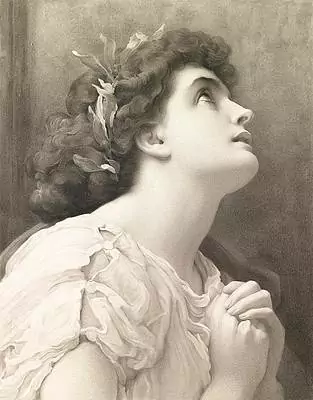
Silence permeates “Night,” symbolizing both the incomprehensible absence of God and the muted response of the world to the Holocaust. Eliezer grapples with God’s silence, unable to reconcile it with the loving deity he was raised to worship.
This theme is painfully illustrated when Eliezer fails to answer his dying father’s call, a silence born of utter despair and hopelessness. Wiesel uses this motif to challenge the reader, posing difficult questions about divine and human inaction in the face of atrocity.
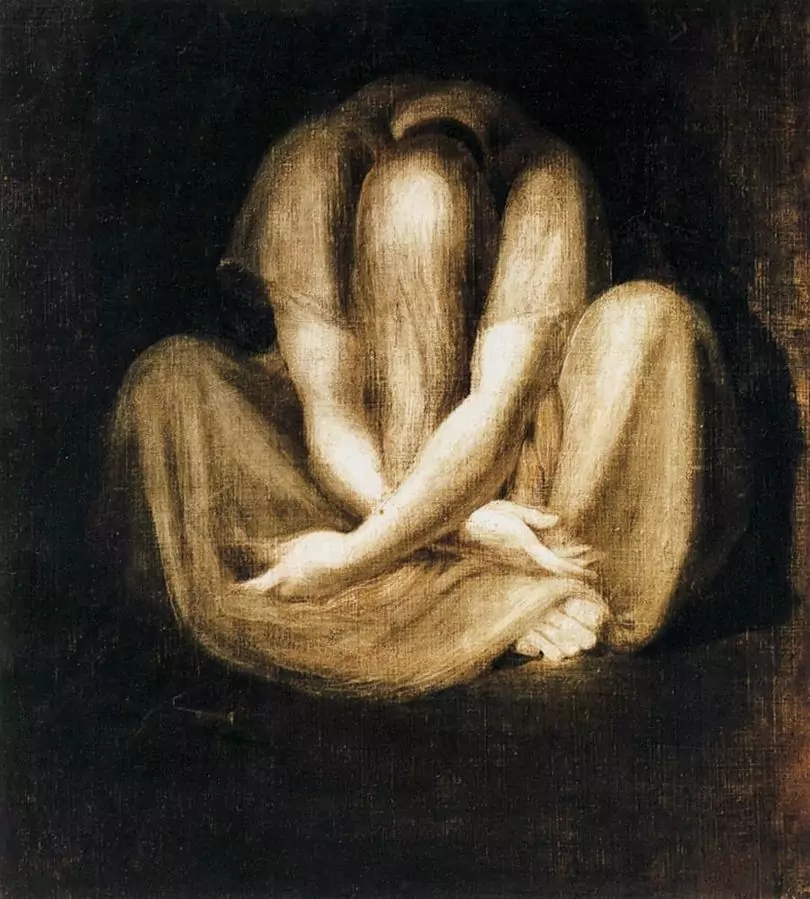
Fathers and Sons
Eliezer’s story begins with him witnessing his father cry for the first time when they are forced to leave their home. This is significant because it shows a crack in the strong figure his father has always been. The memoir “Night” delves into the breakdown of father-son bonds under the extreme conditions of the Holocaust. Central to this theme is the changing relationship between Eliezer and his father, which also reflects on the relationships between other fathers and sons in the concentration camps.
Before the Holocaust, Eliezer’s father is a respected figure both in the community and at home. Their relationship is based on tradition, where honoring one’s parents is a key commandment, especially in Jewish families like theirs. But once Eliezer and his father are separated from the rest of their family at Birkenau, they only have each other. As his father becomes weaker, the roles they once played change. Eliezer finds himself in the position of being the protector, rather than the one protected.
Life in the camps tests their relationship in many ways. Eliezer often feels guilty for being mad at his father when he can’t defend himself or keep up with the march. Despite his weakening state, his father still tries to look after Eliezer by giving him tools for survival and even saving him from being strangled on the train. But there’s only so much they can do to shield one another from suffering. As the conditions worsen and the weaker prisoners start dying, fathers start to be seen as burdens. Sons struggle with guilt over their survival instincts and their inability to save their fathers. Eliezer witnesses the extreme of this when a young man abandons his exhausted father, a rabbi, during a death march, and again on a train when a son kills his father for food.
These harsh realities force Eliezer to confront his feelings for his father. However, by the end of “Night,” these feelings become irrelevant. His father falls ill, no one is willing to provide medical help, and Eliezer is powerless to protect him or to stop others from causing harm. The roles and relationships that once defined them are irreversibly altered.
“Oh, to strangle the doctor and the others! To burn the whole world! My father’s murderers! But the cry stayed in my throat.”
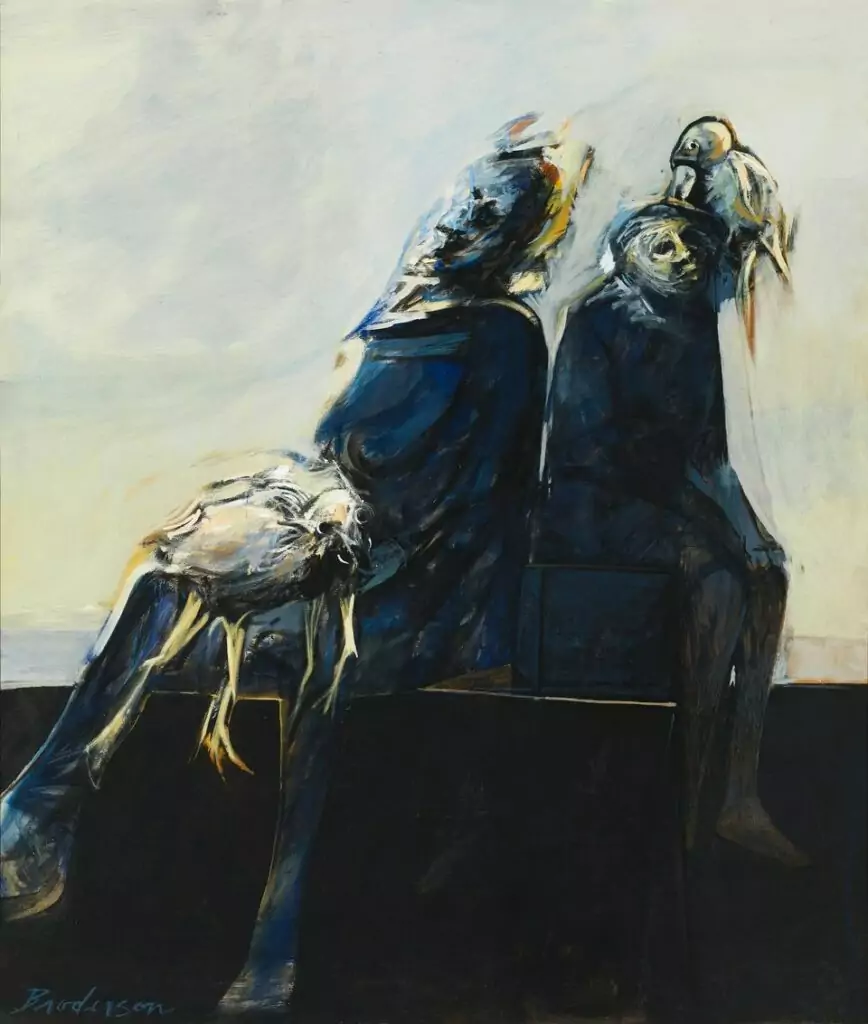
Final thoughts
Elie Wiesel’s “Night” shares a heart-wrenching story of how the Holocaust tore apart people’s lives and faith. It shows the painful change in a son’s duty to his father and the struggle to keep hope alive. The book makes us think deeply about the harsh truths of survival and loss during one of history’s darkest times.
Follow us on Reddit for more insights and updates.
Comments (0)
Welcome to A*Help comments!
We’re all about debate and discussion at A*Help.
We value the diverse opinions of users, so you may find points of view that you don’t agree with. And that’s cool. However, there are certain things we’re not OK with: attempts to manipulate our data in any way, for example, or the posting of discriminative, offensive, hateful, or disparaging material.
Cancel reply
Your email address will not be published. Required fields are marked *
Save my name, email, and website in this browser for the next time I comment.
More from Critical Essay Examples and Samples
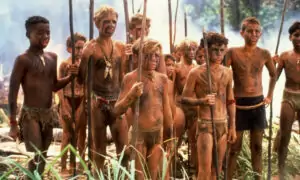
Nov 27 2023

Lord of the Flies Themes

Nov 21 2023
One Flew Over the Cuckoo’s Nest Book Summary
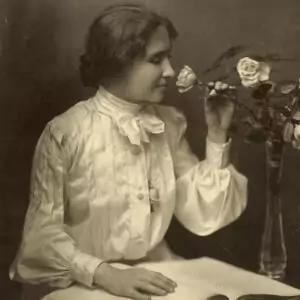
Nov 20 2023
Was Helen Keller racist?
Remember Me
What is your profession ? Student Teacher Writer Other
Forgotten Password?
Username or Email

100 pages • 3 hours read
A modern alternative to SparkNotes and CliffsNotes, SuperSummary offers high-quality Study Guides with detailed chapter summaries and analysis of major themes, characters, and more. For select classroom titles, we also provide Teaching Guides with discussion and quiz questions to prompt student engagement.
Chapter Summaries & Analyses
Chapters 1-2
Chapters 3-4
Chapters 5-6
Chapters 7-9
Key Figures
Symbols & Motifs
Important Quotes
Essay Topics
Discussion Questions
Religion and the Loss of Faith
The struggle to maintain religious faith in conditions of brutal oppression and suffering is a major theme in Night . As a 12-year old boy when the narrative begins, Eliezer is a devout Jew, studying the Torah, Talmud, and Cabbala, the central religious texts of Judaism. He prays regularly and fervently, weeping emotionally though he does not understand why. His spiritual aspiration is encouraged by Moché the Beadle , who instructs him in Jewish mystical theology during long evenings of reading and interpreting the verses of the Cabbala. Religion is the defining element of the young boy’s identity, as it is for many of the Jews of Sighet. Through devotion and intense study of the sacred texts, Eliezer hopes he can grasp the underlying truth behind the mysteries of the world, a world he believes is permeated with the presence and will of a benevolent God.

Don't Miss Out!
Access Study Guide Now
Related Titles
By Elie Wiesel
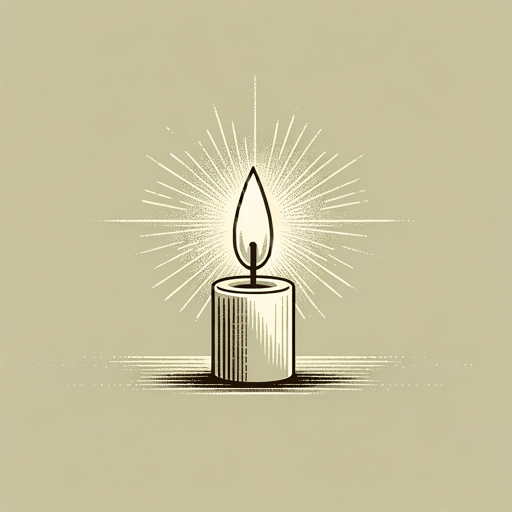
Elie Wiesel
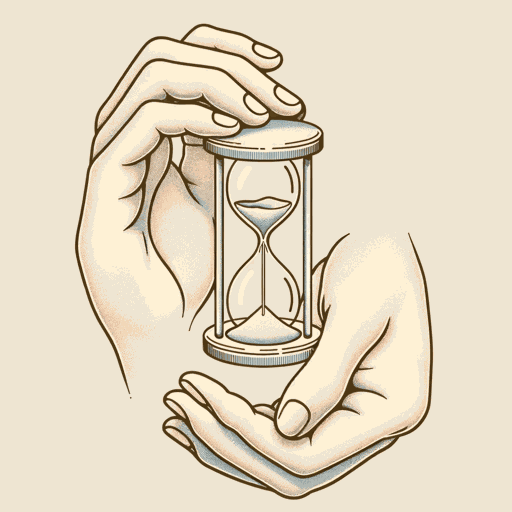
Hope, Despair and Memory
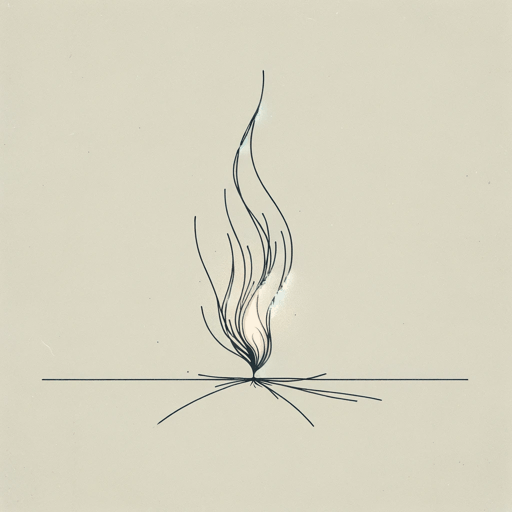
Never Shall I Forget

The Forgotten

The Perils of Indifference
Featured Collections
Audio Study Guides
View Collection
European History
International Holocaust Remembrance Day
Jewish American Literature
Loyalty & Betrayal
World War II
105 Night by Elie Wiesel : Night Essay Topics & Examples
Night by Elie Wiesel is one of the most powerful books on Holocaust and Nazi German concentration camps. If you’re looking for Night essay topics and tips on how to master your Night essay , you have come to the right place.
✍️ Night Essay: How to Write
⭐ thesis statement for night by elie wiesel, 🔝 top 7 night argumentative essay topics, 🏆 best night essay examples & topics, 📌 night essay topics: most interesting ideas, 👍 good research topics about night by elie wiesel, ❓ essay questions for night by elie wiesel.
Night’s major themes include faith and dehumanization, but there are many other aspects that you can explore. This article will provide you with topics, samples, and tips on how to write your essay, including Night thesis statement.
This article will show a few essential tips on how to write the paper and provide you with ideas for your Night by Elie Wiesel essay thesis.
Before you start your work on the paper, we’d suggest you to wipe out all the distractions: turn off the phone and TV. Use app- and website-blocking tools to concentrate on your research and writing.
Now, when you’re concentrated enough, check the next steps to write an A+ paper.
- Pick up a topic and narrow it. Read the book and choose a topic that you find interesting. Then narrow it as much as possible. The key idea of this step is the narrower your topic will be, the easier will be your writing process.
- Clarify your ideas and arguments. Think about what you’re going to discuss in your paper. Define key arguments you will use. You can use mindmapping tools that will help you to organize your ideas in a logical flow. Later, this will help you to write a Night essay outline.
- Search for examples and quotes to support your arguments. Research quotes to support your point of view. You can also use examples from other literary masterpieces, especially if you’re writing a compare and contrast essay. Make sure not to use too many citations: use 3 to 5 quotes and examples as evidence. You may also use a quote as an essay hook.
- Create an outline of your paper. Outlining helps you to structure your ideas and arguments. Moreover, a detailed outline makes the writing process much easier.
When writing your essay’s introduction, pay attention to the thesis statement. The function of paper thesis is to state your opinion and give your readers an understanding of what the essay is about. If you’re struggling with your Night thesis statement, check out these examples:
- In Night , Elie Wiesel demonstrates how extreme circumstances challenge a person’s religious beliefs.
- The author shows how dehumanization affected the main character and made him gradually lose his humanity.
- The atrocities suffered by the main character made him lose his childhood in a traumatic way.
- Father and son in “Night”: relationship dynamic.
- Destructive power of family ties in “Night.”
- Analysis of Death March in “Night.”
- “Night’s” ending: is it hopeful?
- Power and violence in Wiesel’s “Night.”
- “Night”: the significance of the title.
- What does Elie Wiesel write about the death of God?
If you’re struggling with a Night theme to choose for your paper, you may find some interesting ideas below:
- Theme of family. Analyze the relations between the father and son. Why it is important to stay with your family, especially during challenging times?
- Theme of faith and God. Analyze, why does the author writes about the death of God? Provide your own reflection on God and faith. What makes people believe in gods even when there is no hope?
- Power and violence. Think, why Germans who had a power made use violence to force Jews into concentration camps. Read the episode about the Death March and explore why German Soldiers never deprived themselves of killing prisoners who could not keep up.
If writing Night by Elie Wiesel Essay is still a challenging process, check our selection of free paper samples and other useful information at IvyPanda to get advice and find an inspiration!
- The Relationship Between Eliezer and His Father Essay Their experience at the concentration camp changes the relationship between son and father, and the despicable treatment by the Nazis helps Eliezer and his father develop a strong connection.
- Night by Elie Wiesel: Eliezer’s Changing Relationship With His Father He began to feel the loss and gripped with fear of losing his father, the forthcoming experiences and need for protection; he clings to his father.
- Understanding of God – “Night” by Elie Wiesel Although Elie questions the whole concept of faith in God, he never stops to ask questions that connect him with God.
- Elizer’s Struggle to Keep Faith in God This was an indication that although his faith had started to change, he still had faith in God. He was able to come out of the holocaust with a stronger faith.
- Conceptual Inconsistency in “Night” by Elie Wiesel For people who have not been completely deprived of their ability to utilize their sense of logic, as a result of being continuously brainwashed by hawks of political correctness, it does not make a whole […]
- Nazi Deception and “Night” by Elie Wiesel Eliezer, the main character of the novel and the prototype of the author, became one of the victims of the Nazi occupation in Europe.
- Night by Elie Wiesel The book notes that when the Jews were forced into the concentration camps, Elie and his family remained calm and obeyed every directive from their oppressors. The author attributed the enmity among the Jews to […]
- Critique of Elie Wiesel’s Holocaust Book “Night” Like many books on the Holocaust, Elie Wiesel’s Night is a dramatic picture of the horror times in the history of humankind and particularly in the history of the Jewish people.
- “Night” by Elie Wiesel and the Book of Job Comparison Job’s friends tell him that sins caused his sufferings; yet, he refuses to accept it and claims that God still cares for him.
- The Central Themes in “Night” by Elie Wiesel Literature Analysis At the beginning of the novel, we meet Eliezer and his father, the main characters, the destinies of whom we will follow up to the end of the novel.
- Wiesel’s Night and Solzhenitsyn’s A Day in the Life of Ivan Denisovich: Concentration Camps Comparison Nowadays, it has become a commonplace practice to refer to the novels Night by Elie Wiesel and A Day in the Life of Ivan Denisovich by Alexander Solzhenitsyn as such that is concerned with revealing […]
- The Relation Between Eliezer and His Father in Night by Elie Wiesel Soon after that, the Nazis sent them to Auschwitz, but, because of the hardships of the way, only Eliezer and his father arrived there alive. That is how the author’s attitude to and relations with […]
- The Narrative of “Night” by Elie Wiesel The recurring themes of Night, by Elie Wiesel reflect the poignant feelings of disgust of writer against mankind and gradually his loss of faith in God, helplessness and hopelessness of a child who entirely disgusts […]
- Nazi Deception and the Demoralization and Dehumanization of Eliezer and His Fellow Prisoners The novel describes one of the most horrible periods in the history of humanity. The prisoners of the Nazis little knew about their future and they were likely to deceive themselves.
- Understanding of God in Eliezer’s “Night” His unshakable and unconditional faith in God is demonstrated at the beginning of the text through his interest in Talmud, and expressing grief over the destruction of the Temple.
- The Book “Night” by Elie Wiesel The book is a powerful testimony to the horrors of the holocaust and how people can lose their humanity and innocence.
- Eliezer’s Transformations Throughout Night by Wiesel One of the first stages in the main character’s Eliezer transformation is his childhood and the desire to study Talmud and Kabbalah at a young age.
- The Book “Night” by Elie Wiesel Eliezer is the narrator in the tale and experiences multiple challenges throughout the story. Faith, guilt and inaction, and inhumanity are some of the narratives themes that readers can analyze when focusing on the various […]
- The Memoir “Night” by Elie Wiesel The incident changed Eliezer’s attitude where the fulfillment of getting the bread at that particular period outweighed the life of his father.
- Contemplation of Indifference in Elie Wiesel’s “Night” The theme of disregard is especially prevalent in the interaction of the Jews on their way to the camps and those that remain in Wiesel’s native Sighet.
- “Night” by Elie Wiesel: Holocaust and Genocide Given that the events are seen through the eyes of the young person, the major emphasis is placed upon the main character’s perception of the violence and death taking place around him and gradual loss […]
- Holocaust Experience in the Book ‘Night’ by Elie Wiesel Eliezer’s depiction in the story as the main character in the story is that of a humble and religious young man.
- The Jewish Holocaust Novel ‘Night’ by Eliezer Wiesel Generally, Eliezer admired the fact that his father was prayerful and he kept his utmost faith in God even in the time of oppression.
- Eliezer’s Faith in God – “Night” by Elie Wiesel Literature Analysis Eliezer’s faith in God changes throughout the book, as Eliezer experiences the challenges of the Holocaust. The events in the book regarding Elizer’s faith are quite sarcastic and dramatic as Eliezer’s faith moves from an […]
- Night by Ellie Wiesel The paper summarizes the reasoning of the writer and goes a notch higher to analyze some of the themes in order to establish the relevance of the book to the modern political environment.
- Eliezer’s Struggle to Keep His Faith in God It was after he joined the camp that his faith decreased as he could not clearly understand why God could not rescue him and others that he deemed to have suffered more than he did, […]
- Eliezer’s Lost Childhood and the Image in the Mirror The author of the book presents his hero in two ways: on the one hand, he depicts the boy, who is full of hopes and expectations; on the other hand, he shows the boy whose […]
- Night by Elie Wiesel: Eliezer’s Relationship With His Father The relationship Eliezer has with his father at the beginning of the story can be compared to the one he has with God soon after the tough experiences and problems at the Nazi concentration camps […]
- Change in Wiesel’s Understanding of God But this did not change the faith he had in God and he continued believing that God was going to safe them. He believed that the Jews were faithful to God but his understanding was […]
- Wiesel’s Changing Understanding of God The faith that Wiesel had in God was enormous, in spite of the increasing abuse and hatred that the Nazis had for the Jews.
- Comparison of Night by Elie Weisel and Cry of the Beloved Country by Paton Wiesel was brought up in the mountains of the present day Romania and in 1944, at fifteen years old, his family was captured as part of a mission by the Germans to torture the Jews.
- The Importance of Maintaining Faith and Goal to Endure and Overcome Situation in “Night” by Elie Wiesel
- The Terrifying Encounters of the “Night” by Elie Wiesel
- The Examples of Extreme Dehumanization and Genocide Portrayed in “Night” by Elie Wiesel
- The Dehumanizing Sufferings During the Holocaust in “Night” by Elie Wiesel
- The Meaning of the Poem in “Night” by Elie Wiesel
- Violations of Universal Declaration of Human Rights in Elie Wiesel’s “Night”
- The Symbol of Fire During the Holocaust in the Novel “Night” by Elie Wiesel
- The Power of the Nazis, Death, Loss of Humanity and of Faith in “Night” by Elie Wiesel
- The Portrayal of the Hard Life in a Concentration Camp in Elie Wiesel’s “Night”
- Reliability of Testimonies of the Holocaust Survivors: Elie Wiesel’s “Night” and Binjamin Wilkomirski’s “Fragments”
- The Theme of Peer Pressure in “Night” by Elie Wiesel
- The Father-Son Relationship Theme in “Night” by Elie Wiesel
- The Transformation of Eliezer’s Relationship With God in “Night” by Elie Wiesel
- The Survival of the Jewish People in “Night” by Elie Wiesel
- The Inhumanity of the Genocide During the Holocaust in “Night” by Elie Wiesel
- The Psychological Transformation of Holocaust Victims Caused by the Fight to Survive in Two Novels: Elie Wiesel’s “Night” and Art Spiegelman’s “Maus”
- The Experiences at the Nazi Death Camp as Described in Elie Wiesel’s “Night”
- The Life Journey of Elie From Schoolboy to Corpse in “Night” by Elie Wiesel
- The Importance of Studying the Holocaust in “Night” by Elie Wiesel
- The Heartbreaking Stories and Memories of Holocaust Survivors in Elie Wiesel’s “Night” and John Chua’s “Marion’s Triumph”
- The Lose of Faith in God in “Night” by Elie Wiesel
- The Transformation of Eliezer’s Personality Throughout the “Night” by Elie Wiesel
- The Significance of Family Ties in “Night” by Elie Wiesel
- The Human History and the Desire for the Agony in the Novel “Night” by Elie Wiesel
- Theme of Self Respect in “Night” by Elie Wiesel
- The Horrors of Genocide: “Night” by Elie Wiesel
- The Loss of Faith in Humanity in “Night” by Elie Wiesel
- The Role of Spirituality and Religion in “Night” by Elie Wiesel
- The Theme of Darkness in “Night” by Elie Wiesel
- The True Picture of the Holocaust in Elie Wiesel’s “Night”
- The Three Levels of Racism in the Holocaust in “Night” by Elie Wiesel
- The Use of Literary Techniques in Elie Wiesel’s “Night”
- The Genocide and the Holocaust of “Night” by Elie Wiesel
- The Issues of the World War Two as Portrayed in the Novel “Night” by Elie Wiesel
- The Role of Religion in James McBride’s “Color of Water” and Elie Wiesel’s “Night”
- The Creation of Suspense in “Night” by Elie Wiesel
- The Significance of “Night” by Elie Wiesel for the Audience of the 21st Century
- The Frightened and Lonely Attitude of the Speaker in “Night” by Elie Wiesel
- The Struggle of the Holocaust Survivor in “Night” by Elie Wiesel
- The Unique Perspective of Elie on Human Rights Due to His Holocaust Experiences in “Night” by Elie Wiesel
- The Value of Time in “Night” by Elie Wiesel
- A Life After the Concentration Camp in “Night” by Elie Wiesel
- What Was Hitler’s Reasoning for His War on Jews in “Night” by Elie Wiesel?
- What Are the Imagery and Literary Devices in “Night” by Elie Wiesel?
- How Life Through the Holocaust Is Imaged in “Night” by Elie Wiesel?
- Does the Book “Night” by Elie Wiesel Lead to Hope or Despair?
- What Psychological Changes in Victims Are Showed in “Night” by Elie Wiesel?
- What Is the Most Devastating Choice Made in the Book “Night” by Elie Wiesel?
- How Trauma, Memory, and Timelessness Are Illustrated in “Night” by Elie Wiesel?
- What Is the Historical Context of “Night” by Elie Wiesel?
- How Can Reading “Night” by Elie Wiesel Change Views on the Holocaust?
- How Does “Night” by Elie Wiesel Contribute to Modern Society?
- What Does the Title “Night” by Elie Wiesel Evoke?
- What Is the Thematic Message of “Night” by Elie Wiesel?
- Why Is Contextual Knowledge Important When Reading “Night” by Elie Wiesel?
- What Is the Overriding Tone of the Book “Night” by Elie Wiesel?
- What Are a Few Examples of a Thesis Sentence About “Night” by Elie Wiesel?
- Can Death Be a Motif in the Book “Night” by Elie Wiesel?
- How Does Symbolism in “Night” by Elie Wiesel Further the Authorial Message?
- What Does Elie Mean by the Ordinary World in “Night” by Elie Wiesel?
- Why Is Juliek’s Violin So Important in “Night” by Elie Wiesel?
- What Are the Examples of Perseverance in “Night” by Elie Wiesel?
- Is Survival Selfish in the Book “Night” by Elie Wiesel?
- What Is the Desire for the Agony in the Novel “Night” by Elie Wiesel?
- What Is Elie’s Relationship With God in the “Night” by Elie Wiesel?
- What Are the Experiences That Can Change a Person’s Life in “Night” by Elie Wiesel?
- What Are Some Examples of Dehumanization in “Night” by Elie Wiesel?
- Chicago (A-D)
- Chicago (N-B)
IvyPanda. (2024, March 2). 105 Night by Elie Wiesel : Night Essay Topics & Examples. https://ivypanda.com/essays/topic/night-by-elie-wiesel-essay-examples/
"105 Night by Elie Wiesel : Night Essay Topics & Examples." IvyPanda , 2 Mar. 2024, ivypanda.com/essays/topic/night-by-elie-wiesel-essay-examples/.
IvyPanda . (2024) '105 Night by Elie Wiesel : Night Essay Topics & Examples'. 2 March.
IvyPanda . 2024. "105 Night by Elie Wiesel : Night Essay Topics & Examples." March 2, 2024. https://ivypanda.com/essays/topic/night-by-elie-wiesel-essay-examples/.
1. IvyPanda . "105 Night by Elie Wiesel : Night Essay Topics & Examples." March 2, 2024. https://ivypanda.com/essays/topic/night-by-elie-wiesel-essay-examples/.
Bibliography
IvyPanda . "105 Night by Elie Wiesel : Night Essay Topics & Examples." March 2, 2024. https://ivypanda.com/essays/topic/night-by-elie-wiesel-essay-examples/.
- The Alchemist Questions
- I Know Why the Caged Bird Sings Research Ideas
- Sir Gawain and the Green Knight Research Topics
- The Most Dangerous Game Paper Topics
- Sinners in the Hands of an Angry God Research Topics
- The Awakening Questions
- The Bluest Eye Titles
- The Cask of Amontillado Research Ideas
- The Crucible Research Topics
- The Fall of the House of Usher Research Ideas
- The Gift of the Magi Ideas
- A Raisin in the Sun Essay Titles
- Call of the Wild Questions
- Catcher in the Rye Topics
- Lord of the Flies Research Ideas
Home — Essay Samples — Environment — Night — Night By Elie Wiesel Analysis
Night by Elie Wiesel Analysis
- Categories: Night
About this sample

Words: 660 |
Published: Mar 13, 2024
Words: 660 | Page: 1 | 4 min read

Cite this Essay
Let us write you an essay from scratch
- 450+ experts on 30 subjects ready to help
- Custom essay delivered in as few as 3 hours
Get high-quality help

Dr Jacklynne
Verified writer
- Expert in: Environment

+ 120 experts online
By clicking “Check Writers’ Offers”, you agree to our terms of service and privacy policy . We’ll occasionally send you promo and account related email
No need to pay just yet!
Related Essays
2 pages / 922 words
5 pages / 2919 words
6 pages / 2941 words
2 pages / 1109 words
Remember! This is just a sample.
You can get your custom paper by one of our expert writers.
121 writers online
Still can’t find what you need?
Browse our vast selection of original essay samples, each expertly formatted and styled
Related Essays on Night
In the book, “Night” Elie Wiesel tells his story about a young boy that experiences loss, torture, abuse, and dehumanization. Dehumanization is when an individual is lost of the very human qualities that make them who they are, [...]
In Elie Wiesel's powerful memoir "Night," the theme of hope emerges as a central focus amidst the harrowing backdrop of the Holocaust. As readers delve into Wiesel's firsthand account of the atrocities he endured during his time [...]
Night Faith Quotes: Exploring the Depths of Human SpiritualityIn Elie Wiesel's haunting memoir, Night, faith emerges as both a source of solace and a catalyst for profound existential questioning amidst the horrors of the [...]
In Elie Wiesel's powerful memoir, Night, the author recounts his harrowing experiences as a young Jewish boy during the Holocaust. Through vivid and haunting imagery, Wiesel captures the unimaginable horrors he endured, shedding [...]
The Holocaust itself was an exercise in mass dehumanization and extermination of millions of people. The definition of Dehumanization the process of depriving a person or a group of positive human qualities. There are endless [...]
In conclusion, "Night" by Elie Wiesel takes us on a transformative journey through the power of words and the weight of silence. Through his memoir, Wiesel implores us to recognize the significance of speaking out against [...]
Related Topics
By clicking “Send”, you agree to our Terms of service and Privacy statement . We will occasionally send you account related emails.
Where do you want us to send this sample?
By clicking “Continue”, you agree to our terms of service and privacy policy.
Be careful. This essay is not unique
This essay was donated by a student and is likely to have been used and submitted before
Download this Sample
Free samples may contain mistakes and not unique parts
Sorry, we could not paraphrase this essay. Our professional writers can rewrite it and get you a unique paper.
Please check your inbox.
We can write you a custom essay that will follow your exact instructions and meet the deadlines. Let's fix your grades together!
Get Your Personalized Essay in 3 Hours or Less!
We use cookies to personalyze your web-site experience. By continuing we’ll assume you board with our cookie policy .
- Instructions Followed To The Letter
- Deadlines Met At Every Stage
- Unique And Plagiarism Free

Elie Wiesel
Everything you need for every book you read..
At the start of the memoir, it's 1941 and Eliezer is a twelve-year-old Jewish boy in the Hungarian town of Sighet. He's deeply religious and spends much of his time studying the Torah (the Bible) and the Talmud and praying. His parents and sisters run a shop in the town, and his father is highly respected in the Jewish community. Eliezer begins to study the Cabbala, the book of Jewish mysticism, with an immigrant named Moché the Beadle . When the Hungarian police deport all of the foreign Jews, Moché is sent away, but he returns with a terrible and fantastic tale: the Gestapo stopped the train and slaughtered the deported Jews. Moché escaped with a leg wound and has come to warn the Jews of Sighet to leave. The Jews of the town can't believe what Moché is saying, and think he's gone mad.
The war continues through 1943. In 1944, the Jews of Sighet still don't really believe Hitler intends to exterminate them. Eliezer wants his father to relocate the family to Palestine, but his father says he's too old to start again. The Fascists come to power in Hungary and German soldiers enter the country. Before long, German officers are living in Sighet and then arresting the Jewish leaders of the town. Soon, the Hungarian police round the Jews up into two ghettoes. Next, they force the Jews like cattle onto trains headed to an unknown destination.
The Jews travel on the train for several days, during which time one Jewish woman goes mad and screams about fire. The train arrives at Birkenau, the gateway to the Auschwitz concentration camp, where the passengers can see chimneys belching fire and can smell burned flesh. The women are immediately separated from the men, and Eliezer never sees his mother or his younger sister again (they are immediately sent to the gas chamber). A Nazi SS doctor separates those who are going to be killed immediately from those who will work. Eliezer sticks close to his father. That first night in the camp, he witnesses babies and children thrown into a great fire in a burning ditch. Eliezer's faith in a just God is shattered.
More separations occur, but Eliezer and his father stay together. All the prisoners are tattooed with a number, and this becomes their identity. They are told they must work or they will be burned in the crematoria. They spend three weeks at Auschwitz before marching to another concentration camp, Buna. Here, Eliezer and his father spend their days working in an electrical equipment warehouse. Their Kapo (the prisoner conscripted to wield power over other prisoners) occasionally goes berserk and beats people, including Eliezer and his father. The SS doctor appears again to weed out another batch of people for the furnaces. Eliezer has a scare when his father is chosen, but his father manages to convince someone that he can still work. While at Buna, Eliezer continues to rebel against the idea of a just God. After being forced to witness the slow hanging death of a child, he ceases to believe in God, altogether.
With the front lines of the war getting closer, the prisoners at Buna are evacuated on a long, nightmare death march to a camp called Gleiwitz. People die continuously along the way as the SS forces them to run for hours and hours in the snow, shooting people who fall behind. Upon arriving at Buna, a young Jewish violinist plays pieces of a Beethoven concerto. By morning the violinist has died. The survivors of the march are kept without food and water for several days, more are separated from the rest to be killed, and the remaining prisoners are crammed onto trains in open-roofed cattle cars. The train ride is endless. The Jews have nothing to eat but snow, and people die left and right. When they pass through a German town, some German workers toss scraps of bread in the car to watch the starving prisoners fight to the death. More people lie down in the snow and die when the train at last arrives at another concentration camp: Buchenwald. Eliezer's father grows feverish, contracts dysentery, and begins to waste away. Doctors won't help, the camp doesn't want to waste food on sick people, and Eliezer can only offer his own rations to his father, who is soon delirious. The night before Eliezer's father passes away, an SS officer beats the dying man on the head. Eliezer is unable to cry or mourn. He spends another two and a half months at Buchenwald in a daze before the Nazis begin another prisoner evacuation. This time there is an armed uprising among the prisoners and the remaining SS flee. American tanks arrive, followed by food, although Eliezer gets food poisoning and spends two weeks in the hospital, near death. When he looks at his face in the mirror for the first time since he left the village of Sighet, he sees a vision he will never forget: the face of a corpse.


Presentations made painless
- Get Premium
111 Night by Elie Wiesel Essay Topic Ideas & Examples
Inside This Article
Elie Wiesel's memoir "Night" is a powerful and haunting account of his experiences as a young Jewish boy during the Holocaust. The book has become a classic in Holocaust literature, and is often required reading in schools around the world. If you are tasked with writing an essay on "Night" by Elie Wiesel, you may be struggling to come up with a topic. To help you get started, we have compiled a list of 111 essay topic ideas and examples that you can use as inspiration for your own paper.
- Analyze the relationship between Eliezer and his father in "Night."
- Discuss the theme of dehumanization in the memoir.
- Explore the symbolism of night in the book.
- How does Eliezer's faith evolve throughout the course of the story?
- Discuss the role of silence and passivity in the face of injustice in the Holocaust.
- Analyze the significance of the concentration camp tattoos in the memoir.
- How does Eliezer's experience in the concentration camps impact his identity?
- Discuss the ethics of survival in "Night."
- Explore the theme of memory and trauma in the book.
- Compare and contrast Eliezer's experiences with those of other Holocaust survivors.
- Analyze the portrayal of women in the memoir.
- Discuss the theme of fatherhood in "Night."
- Explore the concept of guilt and responsibility in the book.
- How does Eliezer's relationship with God change throughout the story?
- Analyze the use of imagery in the memoir.
- Discuss the role of food in the concentration camps in "Night."
- Explore the theme of hope and despair in the book.
- Analyze the significance of Eliezer's dreams and nightmares.
- Discuss the theme of resistance in the memoir.
- How does Eliezer's experience with violence impact his psyche?
- Explore the theme of betrayal in the book.
- Analyze the role of music and art in the memoir.
- Discuss the theme of friendship and camaraderie in "Night."
- Explore the concept of agency and powerlessness in the Holocaust.
- Compare and contrast Eliezer's experiences in Auschwitz and Buchenwald.
- Analyze the portrayal of the SS officers in the book.
- Discuss the theme of survival guilt in the memoir.
- How does Eliezer's experience with death shape his worldview?
- Explore the theme of humanity and inhumanity in "Night."
- Analyze the significance of the final scene in the book.
- Discuss the theme of memory and forgetting in the memoir.
- How does Eliezer's experience with trauma impact his relationships with others?
- Explore the theme of language and communication in the book.
- Analyze the role of religion and spirituality in the memoir.
- Discuss the theme of liberation and freedom in "Night."
- How does Eliezer's experience with the Holocaust influence his writing style?
- Explore the concept of witnessing and testimony in the book.
- Analyze the significance of the title "Night."
- Discuss the theme of time and temporality in the memoir.
- How does Eliezer's experience with hunger and deprivation impact his body?
- Explore the theme of resistance and rebellion in "Night."
- Analyze the role of the kapo in the memoir.
- Discuss the theme of memory and history in the book.
- How does Eliezer's experience with bureaucracy and paperwork impact his survival?
- Explore the concept of trauma and healing in the memoir.
- Analyze the significance of the number 111 in the book.
- Discuss the theme of fate and chance in "Night."
- How does Eliezer's experience with silence and voice impact his sense of self?
- Explore the theme of love and loss in the memoir.
- Analyze the role of humor and irony in the book.
- Discuss the theme of gender and sexuality in "Night."
- How does Eliezer's experience with memory and forgetting impact his writing?
- Explore the concept of resistance and collaboration in the memoir.
- Analyze the significance of the selection process in the book.
- Discuss the theme of forgiveness and reconciliation in "Night."
- How does Eliezer's experience with bureaucracy and paperwork impact his sense of agency?
- Explore the theme of trauma and recovery in the memoir.
- Analyze the role of memory and history in the book.
- Discuss the theme of resistance and survival in "Night."
- How does Eliezer's experience with violence and trauma impact his sense of self?
- Explore the concept of identity and belonging in the memoir.
- Analyze the significance of the train journey in the book.
- Discuss the theme of memory and forgetting in "Night."
- How does Eliezer's experience with survival and loss impact his sense of self?
These essay topic ideas and examples should help you get started on your essay on "Night" by Elie Wiesel. Remember to choose a topic that interests you and that you feel passionate about, as this will make the writing process much more enjoyable. Good luck!
Want to create a presentation now?
Instantly Create A Deck
Let PitchGrade do this for me
Hassle Free
We will create your text and designs for you. Sit back and relax while we do the work.
Explore More Content
- Privacy Policy
- Terms of Service
© 2023 Pitchgrade
Night by Elie Wiesel: Themes
Elie Wiesel’s memoir Night explores many critical issues that occurred during World War II. Night themes play a crucial role for the readers since they help to comprehend the book’s main idea.
Our specialists will write a custom essay specially for you!
Willing to investigate themes in Night by Elie Wiesel? Read the following article and find a lot of useful information—with quotes!

Faith Theme
Dehumanization theme.
The memoir Night by Elie Wiesel has themes that impress the readers with their versatility and deep meaning. With the plot progress, the author discovers the cental issues from different perfectives. Among all the themes in the book Night , the subject of faith takes the leading role. Moreover, it demonstrates the main character’s transformation throughout the entire story.
At the beginning of the book, Eliezer is a profoundly religious 12 years old boy from a Jews family. He spends days studying Thamud texts and bible verses. During the nights, he prays at the synagogue in Sighet.
Eliezer is very dedicated to God and is passionate about Jewish mysticism – a belief that everything in the world is based on holiness and divine power. Eliezer believes that God is everywhere. Also, he thinks that the Lord is compassionate. Consequently, the world is a place full of kindness by its nature.
Seeking to learn religion more, the boy starts exploring faith with a teacher – Moché the Beadle . He plays an essential role in the formation of Eliezer’s worldview and values.
Just in 1 hour! We will write you a plagiarism-free paper in hardly more than 1 hour
Despite being too religious, Eliezer’s faith starts faltering as soon as he arrives at the concentration camp. Here, he witnesses a sequence of immoral actions that provokes an internal conflict inside him. He still tries to maintain faith in God. Eliezer, as may other prisoners, believes that the concentration camp is God’s test. To get a better life, he is supposed to overcome all the obstacles the Lord sends to him. Yet, the horrific and inhuman actions made my Nazi gradually destroy Eliezer’s belief in God’s kind heart.
The internal Eliezer’s conflict in Night by Elie Wiesel reaches its peak when the boy witnesses the hanging of the “ sad-eyed angel .” This is a terrifying event when the SS officer sentences to death a young prisoner. What’s more, the officer makes the rest of the convicts observe the boy’s painful death in complete silence. At that moment, Eliezer questions the Lord’s kindness. He is no longer a dedicated God’s follower. Moreover, faith makes him frustrated rather than motivated and inspired.
Overall, it would be wrong to assume that Eliezer loses his faith in God. He still believes in divine power. However, the main character questions God’s kindheartedness. Here is where a more complex conflict in Night arises. Eliezer assumes that everything happens for a reason and by God’s will. Yet, he sees a real hell on earth , and he cannot understand how God allowed this. All of these thoughts cause a real cognitive dissonance inside Eliezer’s mind. So, he transforms his worldview to a great extent.
Ultimately, the main character does not lose faith in God, even if it might seem so. He is trying to figure out why God acts inhumanely and allows such chaos on earth . He loses his faith in the goodness of God. Yet, he still believes in divine powers and the Lord’s existence.
Seeking to investigate the theme of faith on a deeper level? See our Night quotes about faith to learn more.
Receive a plagiarism-free paper tailored to your instructions. Cut 20% off your first order!
Losing Faith Quotes in Night
- “I was almost thirteen and deeply observant. By day I studied Talmud and by night I would run to the synagogue to weep over the destruction of the Temple.” ( Night , p. 3)
- “Never shall I forget that night, the first night in camp, which has turned my life into one long night, seven times cursed and seven times sealed. Never shall I forget that smoke. Never shall I forget the little faces of the children, whose bodies I saw turned into wreaths of smoke beneath a silent blue sky. Never shall I forget those flames which consumed my faith forever.” ( Night , Foreword)
- “Some talked of God, of his mysterious ways, of the sins of the Jewish people, and of their future deliverance. But I had ceased to pray. How I sympathized with Job! I did not deny God’s existence, but I doubted his absolute justice.” ( Night , p. 45)
- “Yes, man is very strong, greater than God. When You were deceived by Adam and Eve, You drove them out of Paradise. When Noah’s generation displeased You, You brought down the Flood… But these men here, whom You have betrayed, whom You have allowed to be tortured, slaughtered, gassed, burned, what do they do? They pray before You! They praise your name!” ( Night , p. 67)
- “But now, I no longer pleaded for anything. I was no longer able to lament. On the contrary, I felt very strong. I was the accuser, God the accused. My eyes had opened and I was alone, terribly alone in a world without God, without man. Without love or mercy. I was nothing but ashes now, but I felt myself to be stronger than this Almighty to whom my life had been bound for so long. In the midst of these men assembled for prayer, I felt like an observer, a stranger.” ( Night , p. 68)
One of the central themes of Night is dehumanization. Describing the horrifying events of the Holocaust, Elie Wiesel demonstrates how people can be inhuman. Humans are cruel toward others throughout the book.
The most violent characters of the book are Nazi officers and SS doctors. They are too brainwashed, so they believe some nations (like Jews) are supposed to be exterminated. Nazis mistreat the imprisoned Jews. They keep the prisoners in inhumane conditions, regularly beat and mock them. The imprisoned don’t get enough food and work for long hours without rest. The Nazis’ attitude towards Jews notably shifts Eliezer’s worldview.
One of the graphic displays of violence in Night is the teenager’s execution. The cruel SS officer made the other prisoners observe the painful death of the boy. After witnessing this torture, the central character starts questioning God’s humanity and kindness.
Nevertheless, Nazis are not the only agents of inhumanity in Night . Living in horrible conditions, the fellow prisoners gradually start losing their minds and become violent. Cruelty breeds cruelty. So, Jews lose their sense of compassion and benevolence.
Always facing the acts of blatant dehumanization, the prisoners become cold and rude towards each other. The horrible living conditions and constant tortures make them forget about true human feelings. Horrified, pressured, and exhausted, people prioritize their interests. The only thing they genuinely desire is to stay alive. Hence, the prisoners tend to leave their relatives to deal with their problems by themselves. Sometimes, Jews even fight and kill each other to get more food or water. Under such circumstances, people tend to become selfish. That’s a natural reaction provoked by the instinct for self-preservation.
Get an originally-written paper according to your instructions!
Eliezer keeps believing in the significance of family ties as long as he is capable of doing this. He remains loyal to his father till the very end. Once Eliezer witnesses how another prisoner abandons his father, he becomes too frustrated. At that moment, the main character swears that he will never do the same to his dad. Yet, later, Eliezer finds out that it was just a self-deception. In his desperate attempts to support his weakened father, he feels that his dad became a burden for him. Eliezer is trying to convince himself that he is still faithful to his parent. Sadly, that’s a lie. That’s how deception dehumanizes Eliezer’s personality.
Overall, dehumanization is one of the leading themes in Night by Elie Wiesel. The reader can trace its development throughout the entire book. The Nazis are the key agents of inhumanity in the memoir. Yet, under physical and mental pressure, the prisoners lose their goodwill as well. Even faithful and caring Eliezer becomes coldhearted by the end of the book.
Dehumanization Quotes in Night
- “He seemed to be telling the truth. Not far from us, flames, huge flames, were rising from a ditch. Something was being burned there. A truck drew close and unloaded its hold: small children. Babies! Yes, I did see this, with my own e y e s … children thrown into the flames.” ( Night , p. 32)
- “Remember it always, let it be graven in your memories. You are in Auschwitz. And Auschwitz is not a convalescent home. It is a concentration camp. Here, you must work. If you don’t you will go straight to the chimney. To the crematorium. Work or crematorium—the choice is yours.” ( Night , p. 38)
- “Two SS were headed toward the solitary confinement cell. They came back, the condemned man between them. He was a young boy from Warsaw. […] I heard the pounding of my heart. The thousands of people who died daily in Auschwitz and Birkenau, in the crematoria, no longer troubled me. But this boy, leaning against his gallows, upset me deeply. […] The hangman put the rope around his neck. […] Then the entire camp, block after block, filed past the hanged boy and stared at his extinguished eyes, the tongue hanging from his gaping mouth. The Kapos forced everyone to look him squarely in the face.” ( Night , p. 62)
- “The night was pitch-black. From time to time, a shot exploded in the darkness. They had orders to shoot anyone who could not sustain the pace. Their fingers on the triggers, they did not deprive themselves of the pleasure. If one of us stopped for a second, a quick shot eliminated the filthy dog.” ( Night , p. 85)
- “Listen to me, kid. Don’t forget that you are in a concentration camp. In this place, it is every man for himself, and you cannot think of others. Not even your father. In this place, there is no such thing as father, brother, friend. Each of us lives and dies alone.” ( Night , p. 110)
- Share to Facebook
- Share to Twitter
- Share to LinkedIn
- Share to email
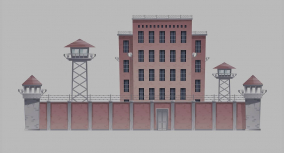
Night by Elie Wiesel is a tragic story of a Jewish teenager that won’t let any reader stay indifferent. The novel is based on real-life events experienced by the author. Thus, Elie Wiesel’s Night is autobiographical, yet how much of the story is fiction remains unclear. It’s known as a...

Night is a semi-fictional memoir by a Romanian-born American writer Elie Wiesel. The book tells the horrifying story of a Jewish teenager who goes through the dreadful torture of the Holocaust. There you’ll see its summary and analysis. The action takes place during World War II. Thus, the book’s analysis...
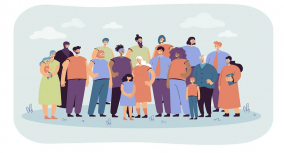
The Night book’s characters impress the readers with their multifaceted natures and dramatic fates. Through their sufferings in concentration camps, Elie Wiesel demonstrates horrifying events the Jews faced during the Holocaust. Now let’s look closely at the key figures of the story: Eliezer Wiesel Eliezer is the book’s central character,...

Symbolism in Night plays a crucial role. It helps the reader reveal the author’s hidden ideas and dive deep into the book’s theme. Elie Wiesel discovers only two symbols in Night – the fire and the night itself. Yet, their meanings are essential for the comprehension of the entire memoir....

Do you need to write an essay on Elie Wiesel’s Night? Are you feeling too overwhelmed and don’t know how to start? No worries! In this article, we’ve gathered everything you need to create an outstanding Night essay: topics, the most insightful questions, valuable prompts, and useful examples. Night by...

On a warm sunny day, all the villagers gathered to kill their randomly chosen neighbor. They had repeated this ritual for many ages. What forced them to be so cold-hearted and narrow-minded? Why did the first readers of the short story get insulted with the plot? What does Shirley Jackson...

The Lottery is one of those stories that can be interpreted in a million different ways. The author brings up many cultural, social, and even political issues for discussion. It is so controversial that the readers were sending hate mails to Jackson! Did you receive a writing assignment on The...

What do the stones symbolize in The Lottery? What about the black box? What is its main theme? There are so many questions to attend to about this story, so this article by Custom-Writing.org experts is here to help you out! Apart from discussing the symbolism in The Lottery, we...

This article by Custom-Writing.org experts contains all the information about the characters in The Lottery by Shirley Jackson: Tessie Hutchinson, Bill Hutchinson, Mr. Summers, Old Man Warner, and others. In the first section, you’ll find The Lottery character map. 🗺️ The Lottery: Character Map Below you’ll find a character map...

A short summary of The Lottery comes down to a description of a pretty violent tradition of one community. Despite a quite optimistic and positive beginning, the reader will soon find out that something feels off about it. The community uses the lottery to pick one person for a sacrifice....

The Necklace by Guy de Maupassant is a short story, which focuses on the differences between appearance and reality. Here, we’ll talk more about the story, plot, the central conflict, characters, themes, and symbols. In The Necklace study guide, you will also learn about the genre and the author’s message....

Writing an essay can be a challenge, even from the very beginning. Coming up with an eye-catching and exciting idea might be a bit of a process. Therefore, we have prepared a list of topics on The Necklace to choose from. Also, you can find essay samples and take a...

COMMENTS
A summary of Themes in Elie Wiesel's Night. Search all of SparkNotes Search. Suggestions. Use up and down arrows to review and enter to select. A Tale of Two Cities Brave New World Fahrenheit 451 ... Suggested Essay Topics Further Study Elie Wiesel and Night Background ...
One of the main themes of Night is Eliezer's loss of religious faith. Throughout the book, Eliezer witnesses and experiences things that he cannot reconcile with the idea of a just and all-knowing God. At the beginning of the narrative, Eliezer declares, "I believed profoundly." He is twelve years old and his life is centered around Judaism ...
Night. One of the most obvious and important symbols in the novel is night. By naming the novel "night" and pushing themes of religious doubt, it's important to consider Genesis and the passages regarding God's creation of the earth. First, the Bile says, there was "darkness upon the face of the deep.". It's this darkness, with ...
Themes are overarching ideas and beliefs that the writers express in their texts, including poetry, fiction, and plays. Themes make the story appealing and persuasive and help readers to understand the hidden messages in a story or poem.Themes in Night, a masterpiece of Elie Wiesel, are diverse.They present question a man's faith, show the effects of cruelty and hatred, along with the dark ...
The night is the novel by Elie Wiesel, Jewish-American author and activist who was awarded the Nobel Prize for his struggle for life, humanity, and peace. The work is devoted to the life of Jewish during the Holocaust. The life of the father and the son who were sent to Gestapo became the central theme of the novel's plot.
Discussion of themes and motifs in Elie Wiesel's Night. eNotes critical analyses help you gain a deeper understanding of Night so you can excel on your essay or test.
Elie Wiesel wrote Night after observing a ten-year-long period of silence after the liberation of the Nazi concentration camps in Europe at the end of the Second World War.Wiesel, when speaking about the novel, described it as picking up where The Diary of Anne Frank left off.The latter spends its pages describing the coming horrors of the concentration camps while Night takes place almost ...
The themes of "Night" by Elie Wiesel explore profound aspects of human nature and spirituality. Eliezer's journey begins in his hometown, where he is deeply immersed in Jewish teachings and traditions. His profound identity as a young, devout Jew is starkly contrasted with the dehumanization he endures under the Nazi regime.
Thanks for exploring this SuperSummary Study Guide of "Night" by Elie Wiesel. A modern alternative to SparkNotes and CliffsNotes, SuperSummary offers high-quality Study Guides with detailed chapter summaries and analysis of major themes, characters, and more. For select classroom titles, we also provide Teaching Guides with discussion and quiz questions to prompt student engagement.
In conclusion, the book "Night" is a harrowing account of the author's experiences as a prisoner in Auschwitz and Buchenwald during the holocaust. The novel is incredibly moving and provides a valuable perspective on one of the darkest periods in human history. The book is a powerful testimony to the horrors of the holocaust and how ...
The Issues of the World War Two as Portrayed in the Novel "Night" by Elie Wiesel. The Role of Religion in James McBride's "Color of Water" and Elie Wiesel's "Night". The Creation of Suspense in "Night" by Elie Wiesel. The Significance of "Night" by Elie Wiesel for the Audience of the 21st Century.
Published: Mar 13, 2024. Elie Wiesel's Night is a powerful and harrowing memoir that recounts his experiences as a teenager during the Holocaust. The book delves into the horrors of the concentration camps, the loss of faith, and the struggle for survival. In this essay, we will analyze the themes of dehumanization, the struggle for faith, and ...
Night Summary. Next. Chapter 1. At the start of the memoir, it's 1941 and Eliezer is a twelve-year-old Jewish boy in the Hungarian town of Sighet. He's deeply religious and spends much of his time studying the Torah (the Bible) and the Talmud and praying. His parents and sisters run a shop in the town, and his father is highly respected in the ...
Lesson Summary. Night is a Holocaust semi-autobiographical novel by Elie Wiesel. It blends the author's experiences with fictionalized details to tell a narrative. Telling the story of Eliezer, a ...
To help you get started, we have compiled a list of 111 essay topic ideas and examples that you can use as inspiration for your own paper. Analyze the relationship between Eliezer and his father in "Night." Discuss the theme of dehumanization in the memoir. Explore the symbolism of night in the book.
Essay Themes in "Night" by Elie Wiesel. THemes 1.) Man's inhumanity to man. Removal of human looks that defined who they are * Same uniform * Cut hair to remove individuality. * "In a few seconds we had ceased to be men" 37 * "I became A-7713. From then on, I had no other name"42. The harshness of the camp quickly transformed them ...
Decent Essays. 531 Words. 3 Pages. Open Document. In this memoir, "Night" by Elie Wiesel, a common theme in this memoir is family ties everything together. In the memoir after Elie's dad died he was so heart broken and didn't want to keep going.This memoir shows all the struggles that Elie and his father had to go through during the ...
Faith Theme. The memoir Night by Elie Wiesel has themes that impress the readers with their versatility and deep meaning.With the plot progress, the author discovers the cental issues from different perfectives. Among all the themes in the book Night, the subject of faith takes the leading role.Moreover, it demonstrates the main character's transformation throughout the entire story.
Night By Elie Wiesel Essay. 365 Words2 Pages. "Never shall I forgive the world for having pushed me against the wall, for having turned me into a stranger.". Elie Wiesel, a holocaust survivor, uses these words to describe his painful experiences and the terrifying story of life inside the concentration camps. Elie Wisel wrote this book to ...
256 Words2 Pages. The book Night by Elie Wiesel portrays and tells the story of how he and many other Jewish people overcame death and many other challenges. In the first part of the book, it shows what the Jewish people had to go through in the early stages when Hitler was just taking charge and the Nazis just arrived in Poland and ...
In the memoir Night by Elie Wiesel, a common theme of loss is spread throughout the book, when many experience the loss of family and loss of faith in their religion. Friends and partners may depart abruptly, whereas family members provide enduring support. Family members are the people that are meant to be kept the closest.
In "Night" Elie Wiesel retells his story about his time during the Holocaust and in the concentration camps, in the book he relives the traumatic time through his memory. Holding onto the memories of the Holocaust is a way for him to remember all the Jewish lives lost and to honor them by. Memories are forged from experiences, good or bad.
In the book Night, by Elie Wiesel, a teenager named Elie Wiesel and his family are sent to the Auschwitz concentration camp. During their time there, Elie suffers from beatings, despair and the death of his family. Throughout the novel, Wiesel explains his experiences and horrors of the holocaust with lots of imagery and symbolism.
Night By Elie Wiesel Theme. Decent Essays. 721 Words. 3 Pages. Open Document. "As for me, I was thinking not about death but about not wanting to be separated from my father. We had already suffered so much, endured so much together. This was not the moment to separate." (pg. 82. This following essay is from a memoir written by a man who ...
In his memoir, Night, Elie Weisel describes the atrocities of the Holocaust he lived through as a Jewish teenager in Auschwitz. As the prisoners were pushed beyond the imaginable, to the point where all that remained was the raw, human instinct to survive, people still fought against it and treated others with compassion and respect even as ...
Night By Elie Wiesel. famous quote describes that to achieve, you must change yourself. On May 1944, Elie Wiesel and his family were forced out from his home in Sighet, Romania to live in Auschwitz, Germany. He and his two older sisters survived the holocaust, Elie then wrote his experience in 1960.